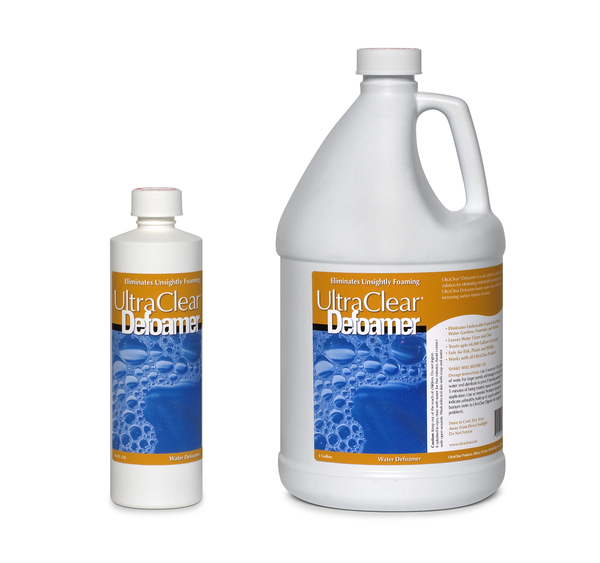How Defoamers Can Save Time and Money in Industrial Production
How Defoamers Can Save Time and Money in Industrial Production
Blog Article
The Role of Defoamers in Enhancing Item Top Quality and Efficiency
Defoamers serve as important additives that mitigate this problem, making sure smoother production workflows while enhancing the aesthetic and useful features of the final items. The choice of the suitable defoamer can be important to accomplishing optimum results, increasing vital inquiries concerning solution compatibility and efficiency metrics that merit additional exploration.
Recognizing Defoamers
Understanding the function of defoamers is essential for keeping product quality throughout numerous markets. Defoamers are chemical additives made to decrease and protect against the development of foam in liquid systems, which can detrimentally impact processes such as blending, loading, and surface area tension. Lathering can bring about inefficiencies, item flaws, and jeopardized visual allure, making defoamers an essential element in making procedures.
In industrial applications, defoamers help to enhance item uniformity and security. In the paint and coverings industry, foam can conflict with the application procedure and the final coating. In food and drink manufacturing, too much foam can prevent bottling and packaging effectiveness. The effective usage of defoamers not only makes certain smoother manufacturing processes but likewise adds to remarkable item performance.
Moreover, the choice and formula of a defoamer have to line up with details application requirements, such as compatibility with various other ingredients, performance under varying temperature and pH conditions, and prospective regulatory constraints. Ultimately, recognizing defoamers' features and their relevance in various formulations is important for optimizing production and making certain the highest top quality final product.
Sorts Of Defoamers
Defoamers can be categorized into several types based on their structure and mechanism of activity. The main types consist of silicone-based, non-silicone organic, and inorganic defoamers.
Silicone-based defoamers are amongst one of the most effective, mainly because of their capacity to spread swiftly on the liquid surface and disrupt foam formation. Their one-of-a-kind chemical framework enables exceptional stability, making them suitable for high-temperature applications and atmospheres with varying pH levels.
Non-silicone organic defoamers, commonly made up of natural oils or fats, are valued for their biodegradability and reduced poisoning. These are typically utilized in food and beverage applications where safety and security and environmental impact are paramount.
Not natural defoamers, that include materials like talc or calcium carbonate, act by enhancing the density of the fluid, thereby decreasing foam stability. They are typically utilized in industrial processes where compatibility with various other materials is not a problem.
Each sort of defoamer has distinctive benefits and constraints, permitting for tailored services depending upon the specific foaming issues come across in different applications. Recognizing these differences is essential for enhancing performance and accomplishing preferred item high quality.
Applications Across Industries
Countless sectors leverage defoamers to boost item top quality and functional performance. In the food and beverage market, defoamers are critical in processes such as brewing and dairy manufacturing to avoid foam formation, which can bring about inefficiencies and item variance. By regulating foam, suppliers can ensure far better return and an extra consistent product.
In the pharmaceutical industry, defoamers play a vital duty in the formulation of liquid medicines, where excessive foam can hinder blending and exact dosing. Their use aids maintain the honesty of the formulas and helps with smoother production processes.
The paint and coatings industry additionally counts on defoamers to boost the performance of products during application. By decreasing foam, these ingredients make sure a smoother finish and enhance the visual top qualities of the end product.

Benefits of Utilizing Defoamers
While the application of defoamers varies across markets, their benefits consistently boost product quality and procedure performance. One considerable benefit is the decrease of foam development during producing processes, which can or else result in production hold-ups and incongruities in item quality. By decreasing foam, defoamers make it possible for his comment is here a smoother circulation of materials, promoting extra efficient procedures and decreasing the possibility of equipment breakdowns.
In addition, using defoamers can boost the look and appearance of last products. In industries such as layers, paints, and food processing, excessive foam can compromise the visual looks and overall quality, while the suitable defoamer application makes certain an uniform coating and desirable attributes. Defoamers can contribute to set Discover More Here you back savings by lowering waste throughout manufacturing and enhancing the usage of raw materials.

Selecting the Right Defoamer
Selecting the appropriate defoamer is essential for maximizing manufacturing procedures and ensuring item top quality. The choice of defoamer influences not just the performance of foam control yet likewise the overall efficiency attributes of the last product. Elements to take into consideration include the type of application, the chemistry of the formula, and the environmental conditions under which the product will be made use of.
Different industries may require details defoamer types, such as silicone-based, organic, or polymeric defoamers. Recognizing the compatibility of the defoamer with the key components is necessary to avoid unfavorable reactions that can endanger item stability. Furthermore, the defoamer's performance in various temperatures and pH levels must be reviewed to make certain regular performance.
Examining the defoamer in small applications can supply valuable understandings right into its web link performance and suitability. Factor to consider of governing compliance, specifically in food, pharmaceuticals, and cosmetics, is extremely important in selecting a defoamer. Inevitably, a comprehensive assessment of these aspects will cause the option of a defoamer that not only controls foam properly yet also improves the high quality and performance of the end product.
Conclusion

In verdict, defoamers are crucial additives that dramatically boost product high quality and performance throughout different markets. The calculated option and application of defoamers lead to set you back savings, maximized resource usage, and enhanced consumer contentment.
Lathering can lead to inadequacies, item defects, and compromised aesthetic charm, making defoamers an essential component in making procedures.

Report this page